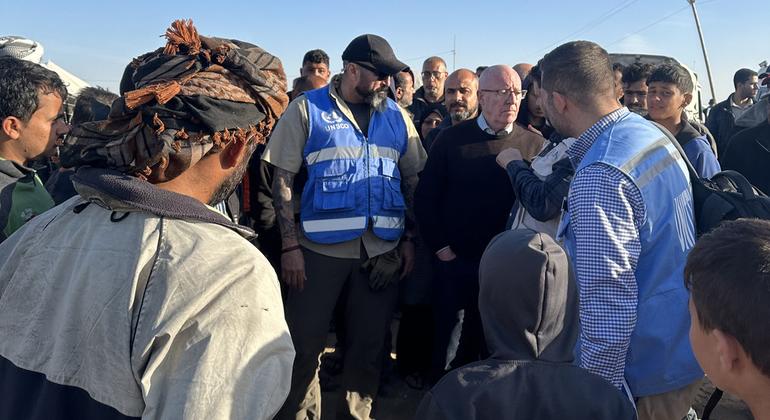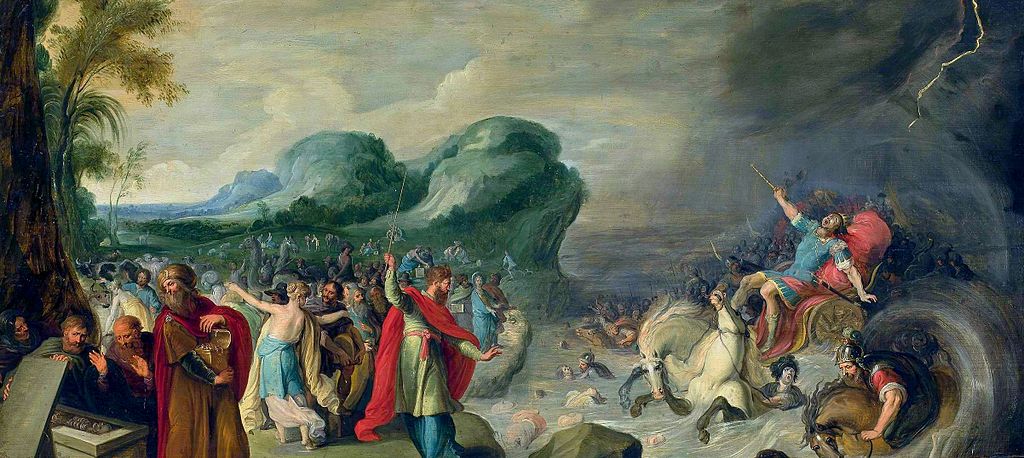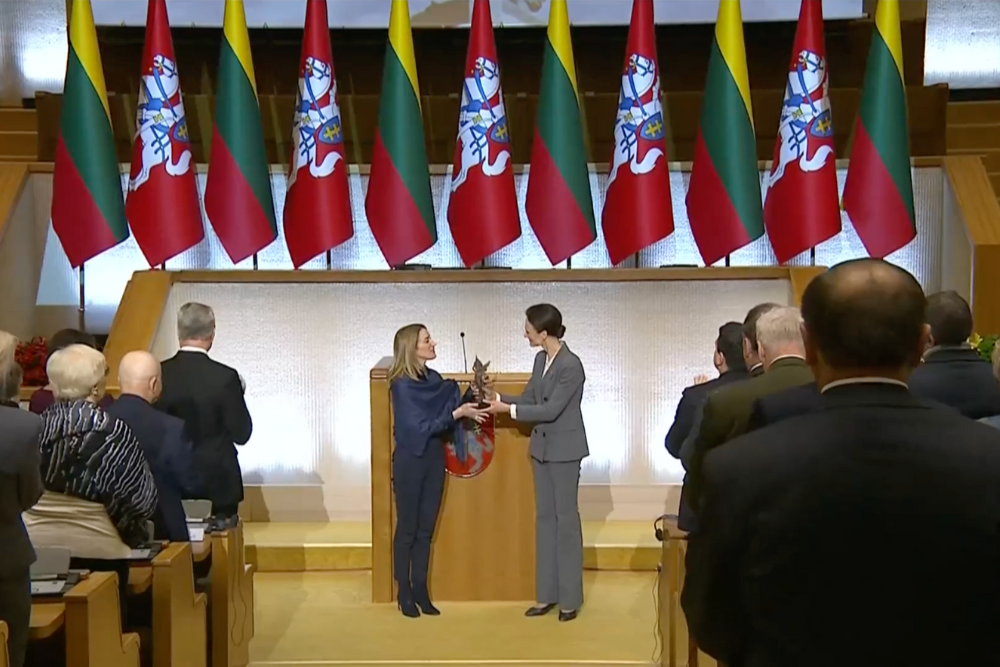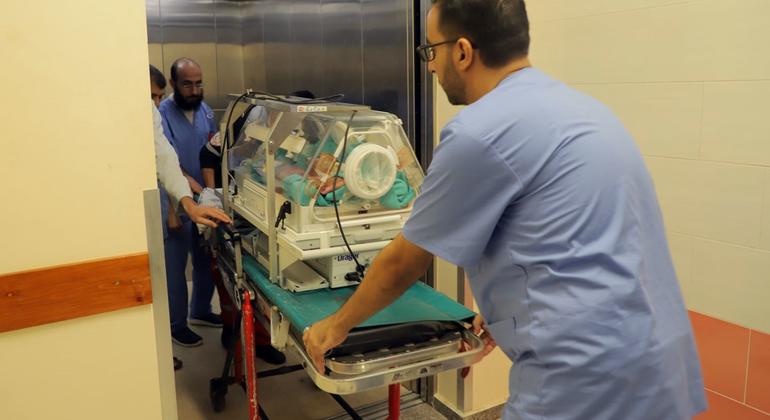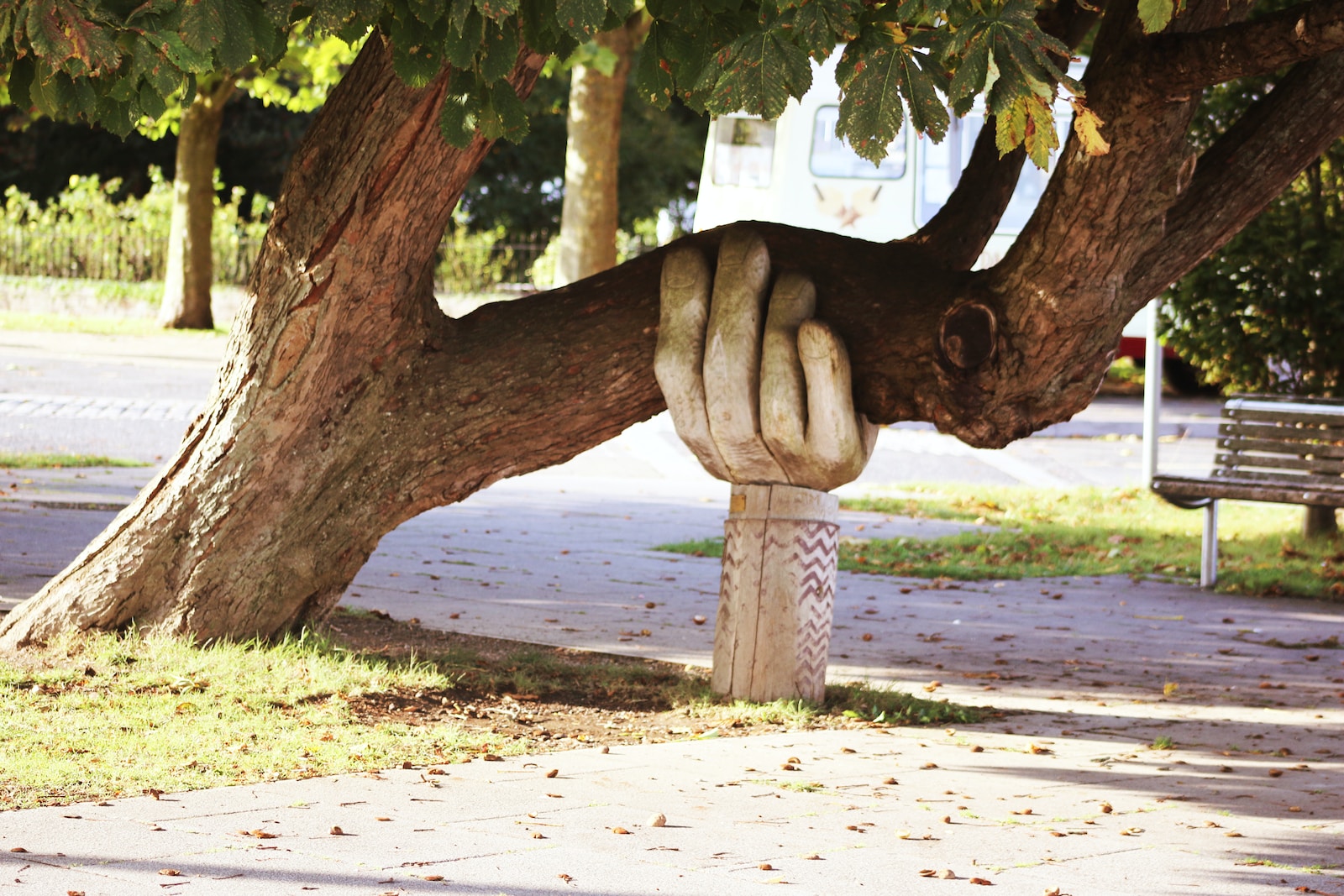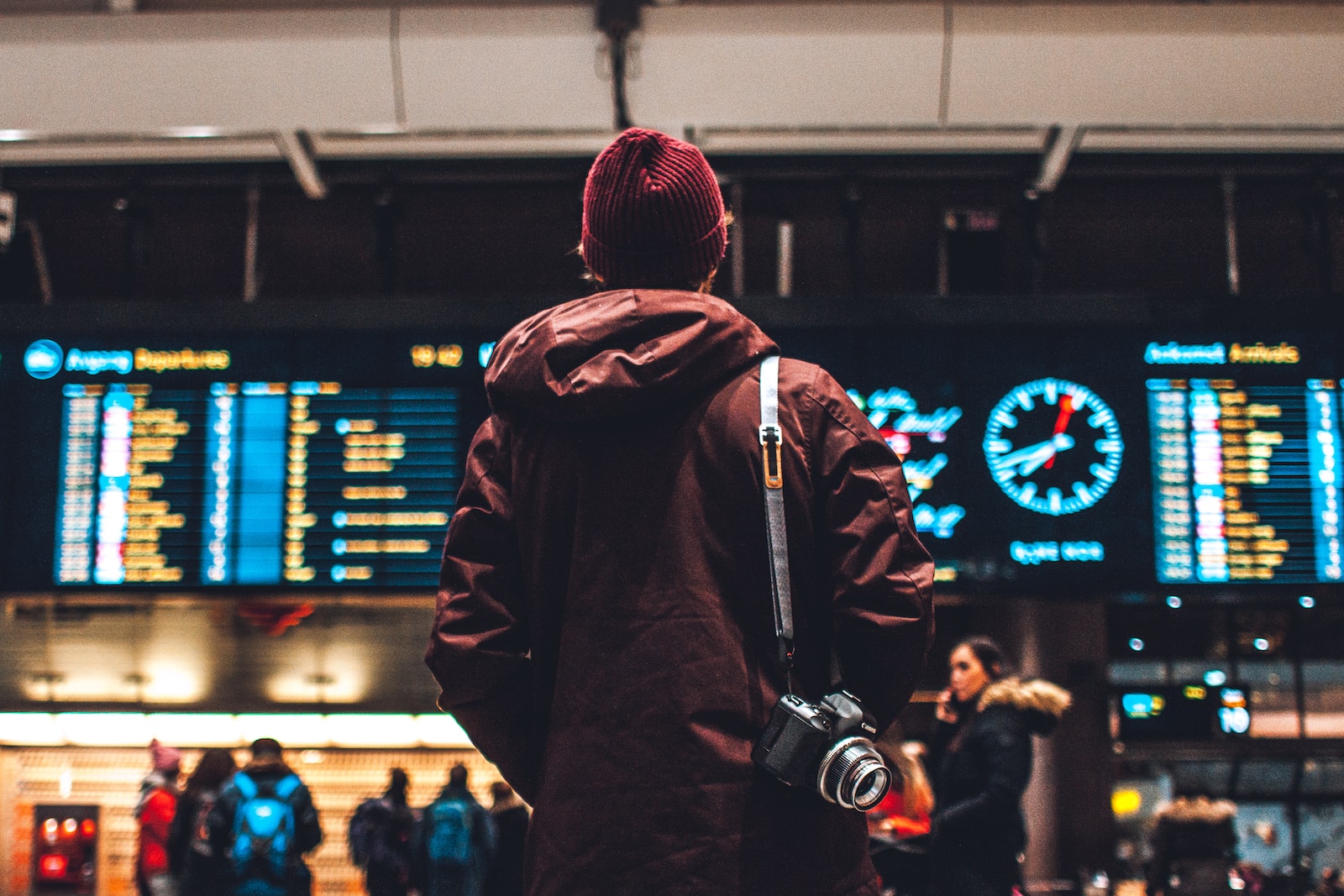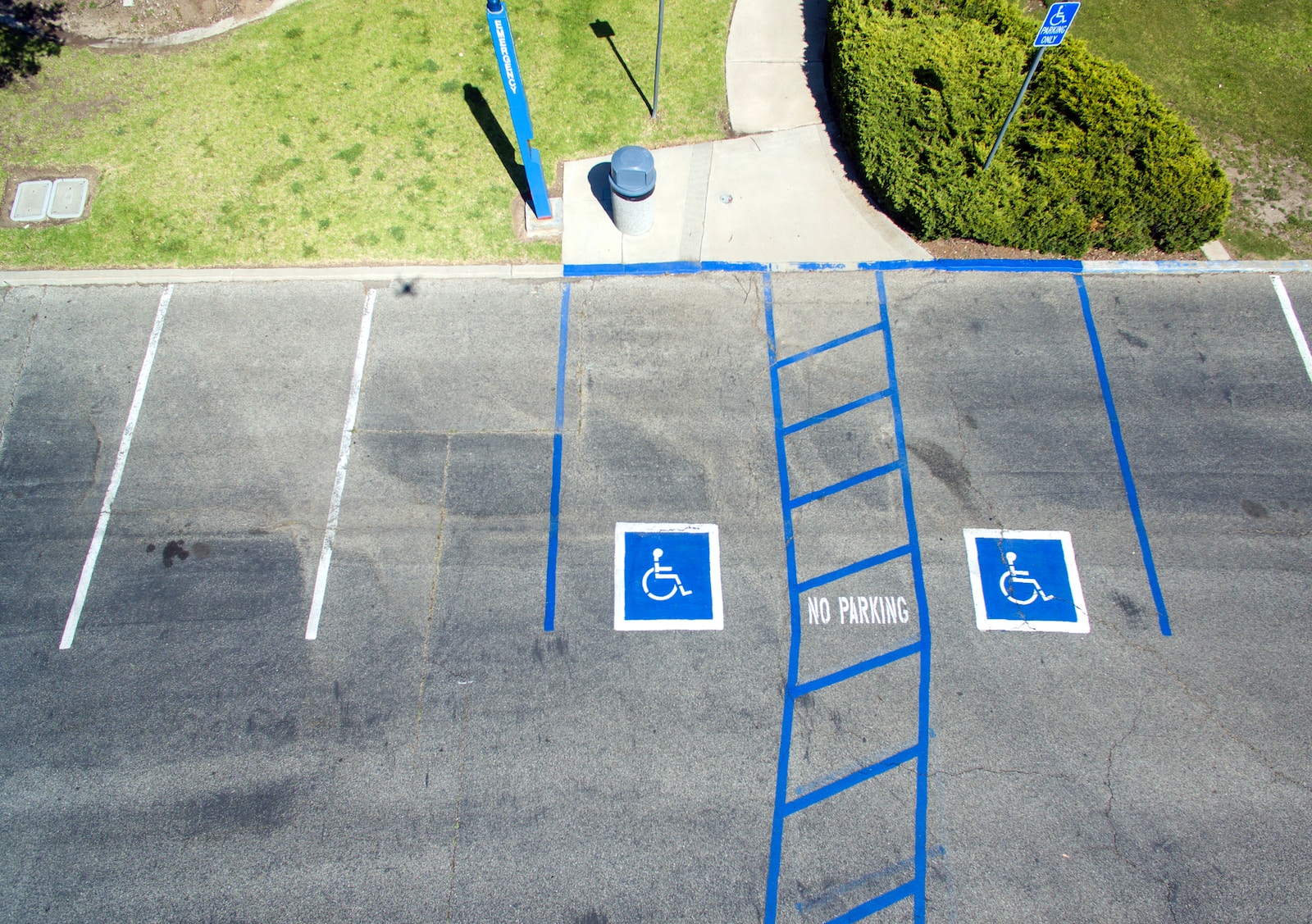At least 200 truckloads each day are needed and despite the “outstanding” efforts of national and international partners, UN humanitarians are stuck having to bring all supplies through a single choke point on Gaza’s southern frontier with Egypt, built as a pedestrian crossing, said Jamie McGoldrick.
The veteran UN aid official spoke exclusively to UN News on Saturday, in his first interview since becoming the interim Resident Coordinator in the Palestinian Occupied Territory late last month.
The Irish national served in the same role, where he is also UN Deputy Special Coordinator for the Middle East Peace Process, between 2018 and 2020.
Prior to that, he was the UN’s Humanitarian and Resident Coordinator in Yemen at the height of the brutal civil conflict there which began in 2015. He has also worked with the International Red Cross.
Mr. McGoldrick recently returned from Gaza, and spoke to Ezzat El-Ferri from Jerusalem, where the UN Special Coordinator’s office (UNSCO) is headquartered, with other offices in the West Bank city of Ramallah and the Gaza Strip.
The interview had been edited for length and clarity:
UN News: You just came back from Gaza, and you’ve been in this role before. You’ve described the situation there as dire in previous years. What was your initial reaction when you first entered Gaza during this war?
Jamie McGoldrick: Well, clearly, the situation has changed dramatically since I was last there. The thing that strikes you most is the numbers. As soon as you arrive through Rafah, what hits you straight away is the immensity of the people who are displaced: every street, every pavement.
They also have these makeshift tents built onto the side of buildings encroaching on the roads. It’s very hard to move around. The place is really, really packed.
The second thing I think is the fact that this crowded nature causes the lack of services that people have. Because this has happened so quickly, that number of people coming to the south (of Gaza). They reckon 1.7 or 1.8 million people in Rafah, which used to have a population of around 250,000.
People have taken up space in hospitals, taken up space in UNRWA schools…and you go to these places, and you see the conditions people live in, the squalor, the crowded nature, the makeshift nature of it.
No one had the time to plan anything. People ran from where they came from: the middle area, the north area, and they came with very little. They’ve had to try and set up a place for themselves in a very difficult, chaotic environment. And the fact that it’s the winter there as well. So, all of that makes it very, very difficult.
It has overwhelmed us because we have a very limited role there for this type of work, and we’ve had to try and scale up, trying to address the needs. And even when I was there eight days ago – I came back just two days ago – the difference in that time was the fact that the crowds still keep coming…The desperation is getting deeper, the human suffering is more intensified.
People clamour for food in the city of Rafah in the southern Gaza Strip
But more importantly we would need to do more to scale up, to get more people, get more access, bring in more material. But it is a mammoth task.
UN News: I’m sure you also met colleagues that were there when you were in this role previously. What experiences have they shared with you?
Jamie McGoldrick: The first one is that of human dimension: people tell you what they’ve left behind. Some tell you they’ve left their houses which have been destroyed, and others tell you of the family members that died. You know, the life they’ve once had is gone and probably gone for such a long time.
There’s a degree of shock and a degree of despair. And I think there’s a sort of hopelessness there as well, because they don’t see any answers to what it is that they face ahead. It’s amazing also that there is resilience and the steadfastness of some of these colleagues who have been in that situation, who have come to the south fleeing as a displaced person, but still standing up to do work.
It’s quite incredible that the people in Gaza have that spirit…and they still keep going on. The fact that there’s been 146 UN colleagues killed. Others have lost parts of the families, yet they still deliver.
It’s not as though you were running away to safety, because where you are right now is unsafe. Where you are right now is getting more and more cramped and crowded. And it’s not as though you’ve arrived somewhere as a displaced person and that’s it. There’s more to come…
UN News: Like you just said, UN humanitarians have been raising their voice about the challenges of being able to get aid into Gaza at scale. On the ground, what does that mean for the population? How much of their needs are being met right now?
Jamie McGoldrick: Before this started, what you had was around 500 trucks per day coming in as commercial transport. And the UN served those who were unfortunate, not able to buy those things commercially. We, the humanitarians, need to have about 200 trucks in a day. And that all covered the population – the humanitarian and the commercial [goods].
What you have now is that the commercial [sector] has stopped. So, the people who were being served by the commercial sector are now squeezing what’s in the humanitarian sector and everybody’s in need. What we’ve got is a situation where the key issues for us are better shelter, more food supplies, better water, sanitation, sewage and the health needs.
Protection concerns all round
At the same time, there’s a lot of protection concerns: gender-based violence, child protection issues as there are a lot of unaccompanied children.
And then also, we need to ourselves, as humanitarians, the ability to do that work. That means protection for us as well. Which means having good communication systems, having the ability to move around. And deconfliction in terms of our humanitarian movements [so they] are actually safeguarded.
And unfortunately, that hasn’t been the case. There’s been a number of incidents. We are trying to bring in more trucks. Yesterday, we had 200 trucks, the most we’ve ever had to crossing into Rafah. There’s nothing coming in from the north. It’s all coming in from the south. We’re trying to save the population, but we know there’s probably all of the population of 2.2 million need some assistance of some kind.
And we are right now facing an uphill struggle to just address the needs of those who we reach. We need to reach far farther, far deeper and far for other places like the north. But there’s ongoing conflict and military operations prevent us from either moving in some of the central zones. So, we’re kind of stuck where we are, and it’s very hard to move convoys, the convoys going north to serve those 250,000 – 300,000 estimated population there.
Two children sit in the rubble of what is left of their house in Rafah city, in the southern Gaza Strip.
We don’t have the ability to do that quickly. There’s only one road. It’s the coast road, because the major road in the middle is actually under military operations at the moment. So, we’re squeezing all of our efforts to the north while we’re trying to struggle to save the south. We have to scale up and the commercial supplies have to start again.
We also have to get more support from donors who have been very willing to let us buy more trucks, rent more trucks, to bring aid in. But it is the struggle that we face. And those four key sectors I just mentioned to you are where the lifesaving will take place.
UN News: We’ve heard several UN officials saying that we need commercial shipments to start coming back into Gaza. But if the economy is in shambles and there’s military activity going on, how can people go on about commerce and go on about their lives, a normal economy?
Jamie McGoldrick: What we would like to do eventually is that, if the commercial sector starts up again, we can actually start supplying the shops that are closed because there’s nothing in them. All the stocks have gone. We have to replenish those stocks.
And once we have that up to a certain scale, we can then start to use cash cards, cash voucher systems.
‘Long, long struggle’ just to keep aid flowing
But we’re a long way off that right now. We’ve got a long, long struggle of just keeping the supply of humanitarian assistance, especially food and medical supplies in there.
Because if we don’t do that, these things, these items are going to be very rife for the black market, and we’ll start to see this exploitation taking place. We’ve already seen that happening.
UN News: Some Israeli officials have said that the only thing hindering the entry of aid into Gaza is the limitations of the UN. How would you respond to them?
It’s a difficult environment because we’ve been able to do limited aid distributions and the Rafah Governorate, where half of the population is now estimated to be, and the rest of the Gaza Strip, it’s been largely stopped due to the intensity of the hostilities and the restrictions on our movements: we’ve had only five out of 24 planned convoys for food and medicine have been allowed to go to the north, for example.
Reliance ‘on one crossing point’
We are trying to increase our operations. Our operations have been sort of hampered by the insistence of the government of Israel to use a pedestrian crossing in Rafah to bring truckloads of supplies. And while it’s working well, we can’t rely on all of Gaza – 2.2 million people – on one crossing point. We have to open up elsewhere.
Aid convoys enter the Gaza Strip through the Rafah border crossing. (file)
The humanitarian operations are kept on a very light availability of fuel. This is a lifeline for the operations of the hospitals to keep the oxygenation, to keep the various parts of the actual hospitals working, the desalination plants to keep drinking water going there.
The ongoing humanitarian operation, I’ve got to say, is absolutely outstanding. The work that’s been done by our national colleagues there, supported by the internationals.
So, we are really struggling. I don’t think it’s because we are against getting more in, or [that] we are not taking up our challenges.
We are at this 100 per cent-plus, but there are restrictions in there…It has to be so that that we can actually bring in what we need and more and more places where there are populations – and not serving 2.2 million through one door – and that’s something that has to change.
UN News: With the situation in Gaza right now, sometimes the West Bank can fall off the radar. Do you have any updates on the situation there?
Jamie McGoldrick: I think we all see the situation in the West Bank. There have been flashpoints in the West Bank since early last year and then since 7 October, the tragic issue, I think that’s accelerated. And we’ve seen over 300 Palestinians have been killed and some 80 children have been killed.
We’ve seen from OCHA and the report’s it’s done that there’s an increase obviously in settler violence against Palestinians. And I think that’s something that we see as a constant trend. There were around 200,000 work permits in Israel but that’s now been suspended…I think that many of them probably lost their jobs now.
No revenue transfer from Israel
And there’s all the civil servants that were there and they’re now getting reduced wages because the actual Palestinian Authority is struggling, because the transfer of revenues from Israel hasn’t happened for some time.
The humanitarian community, many parts of it, are inside, part of the West Bank…We’re trying to address the crises that comes up. It’s very, very hard to keep those two things going at the same time, the concentration on Gaza but then not trying to forget the size of the ongoing problem, that’s happening in the West Bank.
UN News: 57 years now of occupation, the issue is over 75 years old. People are really starting to lose hope in the peace process. So, what can be done to restore that hope and revitalize the office of the Special Coordinator [for the Middle East Peace Process], to reach a settlement?
The Special Coordinator’s office is still full on trying to address all of these crises which are interlinked, which is the humanitarian linked with the governance challenges, so that’s something that will have to happen.
More pressure needed to free hostages
But I think at the same time, we have to push harder and strengthen the negotiations on the immediate, unconditional release of hostages by Hamas. That has to happen.
We have to scale up assistance going into Gaza, taking into account Israel’s own internal security concerns, and we have to increase the humanitarian crossings to allow aid into Gaza, such as Kerem Shalom in addition to Rafah. But we also have to look at northern crossing points.
Jamie McGoldrick – Interim Resident and Humanitarian Coordinator in the occupied Palestinian Territory meeting Palestinian Red Crescent Representatives in Rafah, Southern Gaza
We have to restore these basic services, medical, humanitarian, which have been impacted by this conflict and then start to build new ones to resume the lifesaving operations.
And we have to allow more injured patients and those people to get treatment outside Gaza, because Gaza is devoid of the full range of services required for people who have been caught up in this crisis. We have to allow more and more services into those areas.
‘At some time, we have to get back to the peace process’
I think the peace process can’t be understood or considered at this time. We’re almost 100 days of war – how is it going to end and if and when it does, how can the parties, the different parts of the Palestinian parties come together, and how can then the Palestinians and the Israelis sit round the negotiating table, given the depths of what’s happened in that time?
So, I think that there’s a lot of healing to go through and there’s a lot of circumspection to go through, a lot of understanding what all this means. But at some time, we have to get back to that peace process, some way of pulling out an understanding of how people are going to live together.
UN News: That was exactly going to be my last question to you. How is it possible that after all of this, parties can actually sit back down at the table? How can we explain this to the layperson who doesn’t know?
Jamie McGoldrick: I think peace is more normal than war. I think that’s the fundamental and I think that all people want to live in peace and have a life. They want to have a future. The want their dreams, they want to be able to know what’s coming next. They want to be able to socialize and have families, and you can’t have that in the situation where you’ve got this conflict and you’ve got this insecurity, and I think that has to disappear.
Understanding, appreciation, accommodation
And then you can start the mending process, the healing process. You have to then think for yourself, how do you link to your neighbour? How do you link to the people that you are going to have to live side by side with? And it’s an understanding and appreciation, an accommodation.
And we see it in many, many conflicts around the world. And unfortunately, this one is one of the most longstanding and the most deep rooted.



